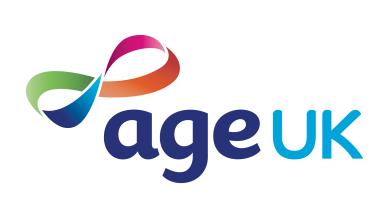Addressing this gap is not just a matter of convenience; it’s becoming required for health, wellbeing, and full participation in society – and something we should bear in mind during this election period.
Age UK’s policy is clear: while we support and encourage older people to get online, we also recognise that those who cannot or do not want to, should still have access to essential services in ways that suit them.
However, the increasing shift to 'online first' services means that those who remain offline are at risk of being left behind, missing out on vital services and information that many of us now rely on.
4.7 million people aged 65 and over don't have the basic skills to use the internet successfully and safely.
Today, the role of the internet cannot be overstated. It’s become the backbone of how we access services, stay in touch with loved ones, and even enjoy entertainment.
For many older people who are not online, this digital divide can lead to significant disadvantages. Simple tasks like checking bin collections and paying for parking have become challenging. As bank branches close, managing finances without online banking can mean lengthy and inconvenient trips. Booking GP appointments and ordering prescriptions are increasingly moving online, posing real challenges for those without digital skills.
Further to this, social isolation and loneliness can be worsened by a lack of digital connectivity. Without access to email, online messaging, video calls, or social networks, staying in touch with friends and family becomes a major hurdle.
This is where Age UK’s Digital Champion Programme steps in, providing older people with the confidence, tools and skills needed to bridge this gap. Age UK has over a decade’s worth of experience and expertise in delivering digital inclusion services.
Our approach is person-centred meaning that older people are encouraged to explore their goals and support is specifically tailored to their unique needs. This approach is key because the barriers to digital inclusion are diverse – from physical disabilities and cognitive impairments to economic constraints and a simple lack of confidence.
I believe that adult learning is more than just about teaching things like digital skills; it’s about building confidence, making connections and transforming lives. By supporting older people to get online, we help them maintain their independence, stay in touch with loved ones, and access essential services with ease.
Developing digital skills and learning in later life can keep older people engaged and curious about the world around them, fulfilling a broader sense of self, helping them to feel more capable and accomplished, as well as maintaining key aspects of cognitive function, such as memory and critical thinking.
It’s my hope our future government will lead the development of a long-term, fully-funded national Digital Inclusion Strategy. This strategy should support people of all ages who want to go online and ensure funding and support for those who would like to improve their confidence and digital skills.
By ensuring everyone has access to digital tools and education, we empower people to improve their lives and participate fully in society. It’s up to all of us — individuals, businesses, community leaders, and government — to create a more digitally inclusive future.
Learn more about Age UK’s Offline and Overlooked campaign here.
Digital Inclusion awareness raising videos:
- Tea and tech with Lauren and Jean
- Talking about tech with Jean
- Talking about tech with Ruth
- Talking about tech with Dereck
- Digital Champions Compilation
The WEA are a leading adult education charity with a legacy that stretches back over a hundred years, having been founded back in 1903. Our mission is to bring adult education within reach of everyone who needs it, fighting inequality and promoting social justice. Today, we continue to empower adults by bringing great teaching to local communities across England and Scotland, reaching tens of thousands of learners each year. You can browse all of our courses here.
WEA learner Jayne started studying with WEA during the Covid-19 lockdown, and now uses the art and textiles skills she has learned to support other people on their journeys of recovery.

